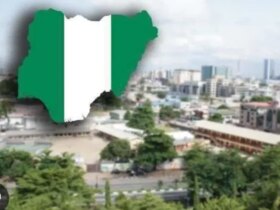Jonathan Lied: Buhari Was Boko Haram’s Target, Not Their Ally – Ex-Aide Shehu Reveals

Garba Shehu, former presidential spokesperson, has refuted former President Goodluck Jonathan‘s assertion that Boko Haram once proposed the late President Muhammadu Buhari as their representative in peace negotiations with the Federal Government.
In a firm statement released on Friday, Shehu labeled Jonathan’s claim as unfounded and politically charged, emphasizing that Buhari was never affiliated with the terrorist group but was, in fact, one of their primary targets.
Shehu recalled the July 2014 Boko Haram bombing in Kaduna, which Buhari narrowly survived while some of his aides were injured. “How can anyone reasonably suggest that the sect appointed him as a negotiator?” he questioned.
He argued that Jonathan’s remarks were a strategic move aimed at gaining political leverage ahead of a potential 2027 presidential campaign.
“If this is an early campaign tactic for the 2027 presidency, we advise Mr. Jonathan that he is off to a misleading start,” Shehu stated.
The ex-presidential aide clarified that Buhari never accepted or acknowledged any such nomination from Boko Haram.
He referenced a 2011 declaration by Engr. Buba Galadima, then National Secretary of the Congress for Progressive Change (CPC), who confirmed Buhari was unaware of any such designation.
“As of 10pm yesterday when I spoke with him, he had no knowledge of this,” Galadima told reporters. Buhari regarded the reports as mere rumors and maintained that, as a devoted Nigerian, his role was to pray for peace and national stability.
Shehu explained that the misunderstanding stemmed from a Maiduguri press briefing by Abu Mohammed Ibn Abdulaziz, a self-proclaimed Boko Haram commander, who named Buhari and other northern leaders as possible mediators.
However, Boko Haram’s legitimate leadership under Abubakar Shekau later repudiated this claim, asserting that Abdulaziz lacked the authority to represent the group.
Shehu also recalled that the late CPC Publicity Secretary, Rotimi Fashakin, accused Jonathan and the Peoples Democratic Party (PDP) of exploiting the false report for political advantage. Fashakin described the alleged nomination as a diversionary ploy by a corrupt administration to mask “widespread plundering of the nation’s resources.”
“Without any doubt, General Muhammadu Buhari has never been involved, directly or indirectly, in any rebellion or insurgency against Nigeria and its citizens. He remains the embodiment of patriotism,” Fashakin asserted.
Shehu further accused the PDP-led government under Jonathan of exacerbating insecurity, citing disclosures from security agencies and Jonathan’s own acknowledgment that Boko Haram operatives had infiltrated his administration.
He categorized the insurgents into three factions: the original Boko Haram, aggrieved by the death of their leader Mohammed Yusuf; a criminal element driven by financial gain; and what he termed the “Political Boko Haram,” which he claimed was represented by the PDP government.
Addressing Jonathan directly, Shehu concluded, “If Dr. Jonathan hopes to succeed in 2027, he must craft a more credible narrative.”







